Treatments We Offer
Manual Therapy
Hands-on techniques to mobilise joints, release tight muscles, and reduce pain.
Exercise Rehabilitation
Targeted strengthening and stretching exercises to support the spine and improve posture.
Acupuncture
Used to relieve muscle tension and improve mobility (where appropriate).
Electrotherapy
Pain relief using gentle electrical stimulation.
Core Stability Training
To build strength and support in the muscles surrounding the spine.
Acute Injury Management
Immediate care to reduce pain, swelling, and promote healing (RICE principles: Rest, Ice, Compression, Elevation).
Sports-Specific Rehab Exercises
Strengthening and mobility programs tailored to your sport and goals.
Biomechanical Assessments
Identifying movement patterns or weaknesses contributing to injury.
Taping and Bracing
For joint support and protection during the healing phase or return to sport.
Injury Prevention Education
Helping you understand how to reduce your risk of future injuries with proper warm-up, recovery, and technique.
Stretching Programs
To relieve tightness and improve muscle flexibility and range of motion.
Strengthening Exercises
Targeted plans to restore muscle function and correct imbalances.
Education & Self-Management Strategies
So you understand how to manage flare-ups and prevent recurrence.
Postural Training & Strengthening
Helping improve core and lower limb strength for better stability.
Weight-Bearing & Resistance Exercises
Safe, guided movements that help stimulate bone strength and support muscle development.
Flexibility & Mobility Work
Gentle stretches to maintain joint movement and prevent stiffness.
Pain Management Strategies
Where needed, including manual therapy and gentle techniques to ease discomfort.
Pregnancy-Safe Exercises
To strengthen core and pelvic floor muscles, support your spine, and improve posture.
Pelvic Floor Education & Rehab
Preparing your body for birth and recovery after delivery.
Breathing & Relaxation Techniques
To ease tension and improve circulation.
Core Strengthening & Diastasis Management
Safe exercises to rebuild your abdominal muscles and support your back.
Gradual Return-to-Exercise Programs
Based on your goals, whether it’s walking, yoga, running, or gym workouts.
Activity Modification Advice
Guidance on how to adjust your work or lifestyle habits to prevent ongoing strain.
Exercise Therapy
Strengthening and stretching to support muscles, tendons, and joints involved in repetitive tasks.
Education on Rest & Recovery Strategies
Helping you recognise early signs of strain and how to respond.
Joint Mobility Work
To improve movement and flexibility before surgery.
Personalised Exercise Programs
Gradually progressing from gentle movement to strength and function.
Scar Management
Techniques to improve scar mobility and reduce discomfort.
Balance & Gait Training
Exercises to improve your coordination, step confidence, and walking pattern.
Assistive Device Advice
Guidance on proper use of walking aids (e.g. canes, walkers) if needed.
Joint Protection Strategies
Teaching you how to move safely and efficiently to avoid unnecessary strain.
Conditions We Treat
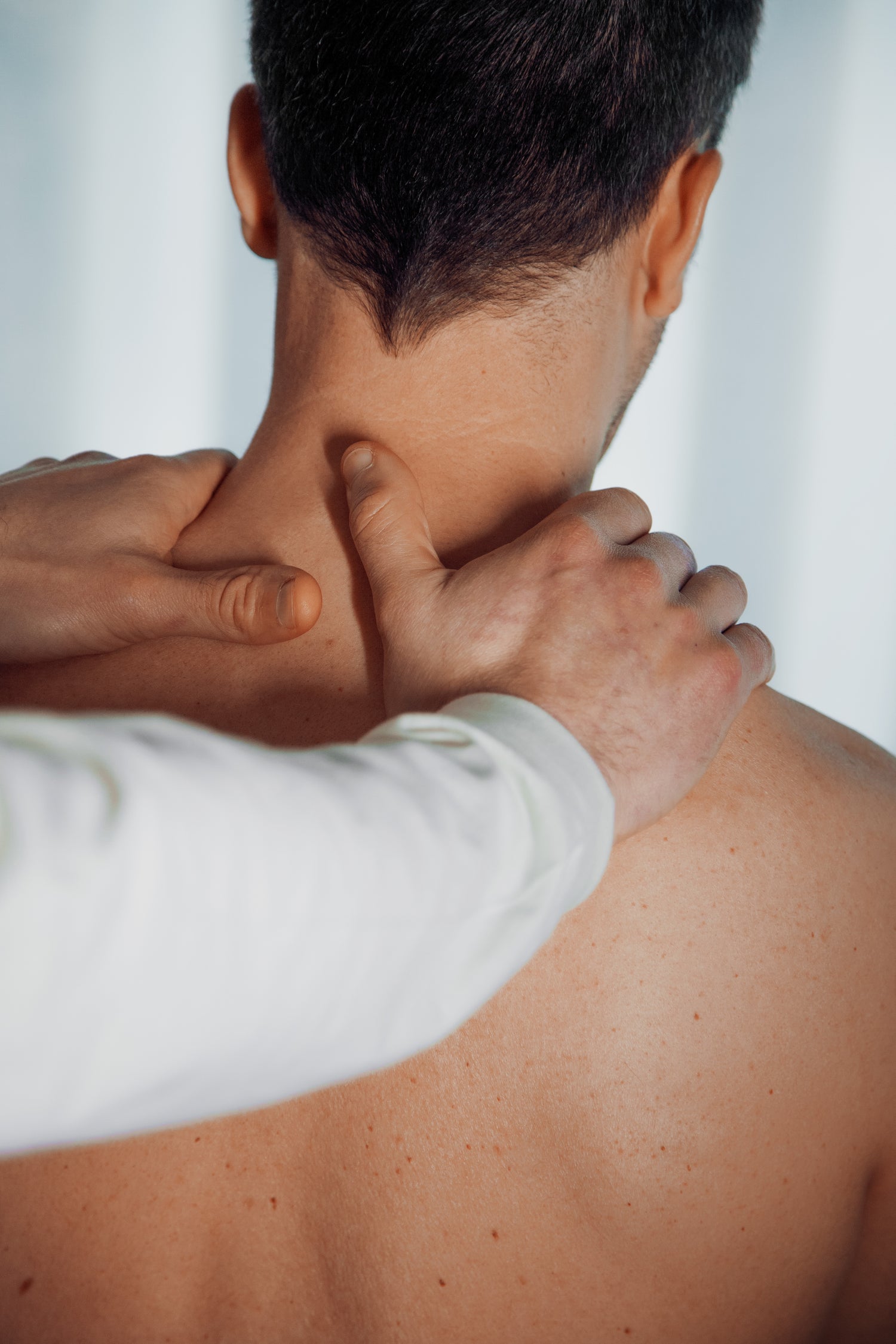
Neck & Back Pain
Neck and back pain are some of the most common issues we treat at our clinic. These symptoms can arise from a variety of conditions, including:
- Muscle Strain or Tension: Often caused by poor posture, heavy lifting, or sudden movement
- Herniated or Bulging Discs: When the cushioning discs between your vertebrae become damaged or slip out of place.
- Sciatica: Pain radiating from the lower back down the leg, usually due to nerve compression.
- Degenerative Disc Disease: Age-related wear and tear of spinal discs that can lead to stiffness and discomfort.
- Facet Joint Dysfunction: Irritation or inflammation of the small joints between spinal vertebrae.
- Whiplash: A neck injury from sudden movement, often due to car accidents.
- Postural Problems: Long-term poor posture leading to chronic neck or back discomfort.
- Spinal Stenosis: Narrowing of the spinal canal that can put pressure on nerves.
Our physiotherapists tailor each treatment plan to your individual needs. The goal is to not only relieve your pain but also to identify and address the root cause, helping you return to full function and prevent future problems.
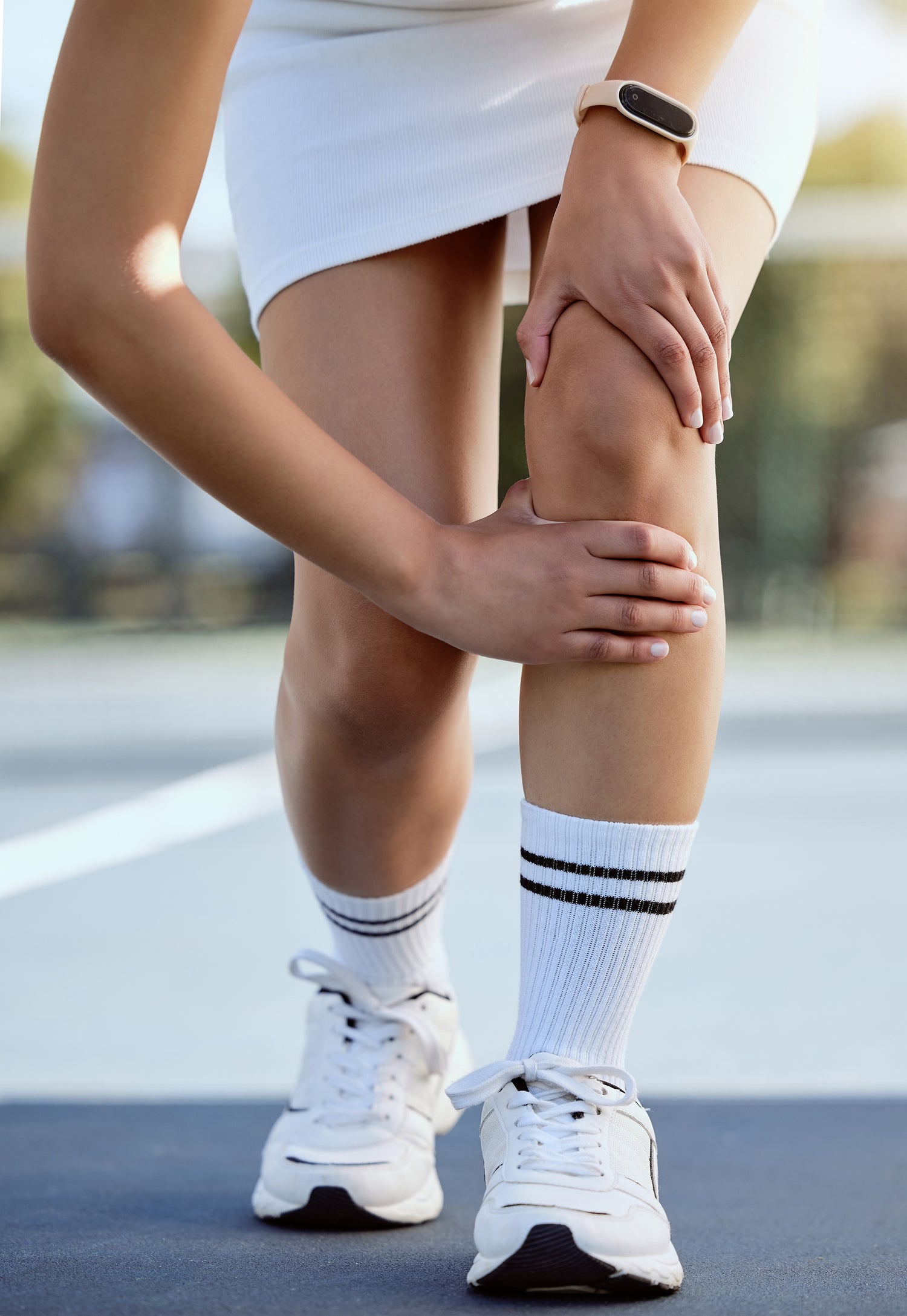
Sports Injuries
Whether you're a weekend warrior or a professional athlete, sports injuries can be frustrating and disruptive. At our clinic, we help people recover from injuries and get back to doing what they love – safely and effectively.
- Sprains and Strains: Overstretching or tearing of ligaments (sprains) or muscles/tendons (strains).
- Tendonitis and Tendinopathy: Inflammation or degeneration of tendons, often due to overuse (e.g., Achilles, patellar, or rotator cuff).
- Ligament Injuries: Including ankle sprains, knee ligament injuries (like ACL tears), and more.
- Muscle Tears: Partial or complete tears, often seen in hamstrings, calves, and quads.
- Shin Splints (Medial Tibial Stress Syndrome): Pain along the shin bone, common in runners.
- Stress Fractures: Small cracks in bones due to repetitive force or overtraining.
- Shoulder Injuries: Such as rotator cuff tears, impingement, or dislocation.
- Runner’s Knee (Patellofemoral Pain Syndrome): Pain around or behind the kneecap.
- Plantar Fasciitis: Heel pain caused by inflammation of the plantar fascia.
Our physiotherapists design tailored rehabilitation programs for all types of sports injuries. We work closely with you at every stage – from initial assessment to full return to sport – to ensure a safe, confident, and complete recovery.
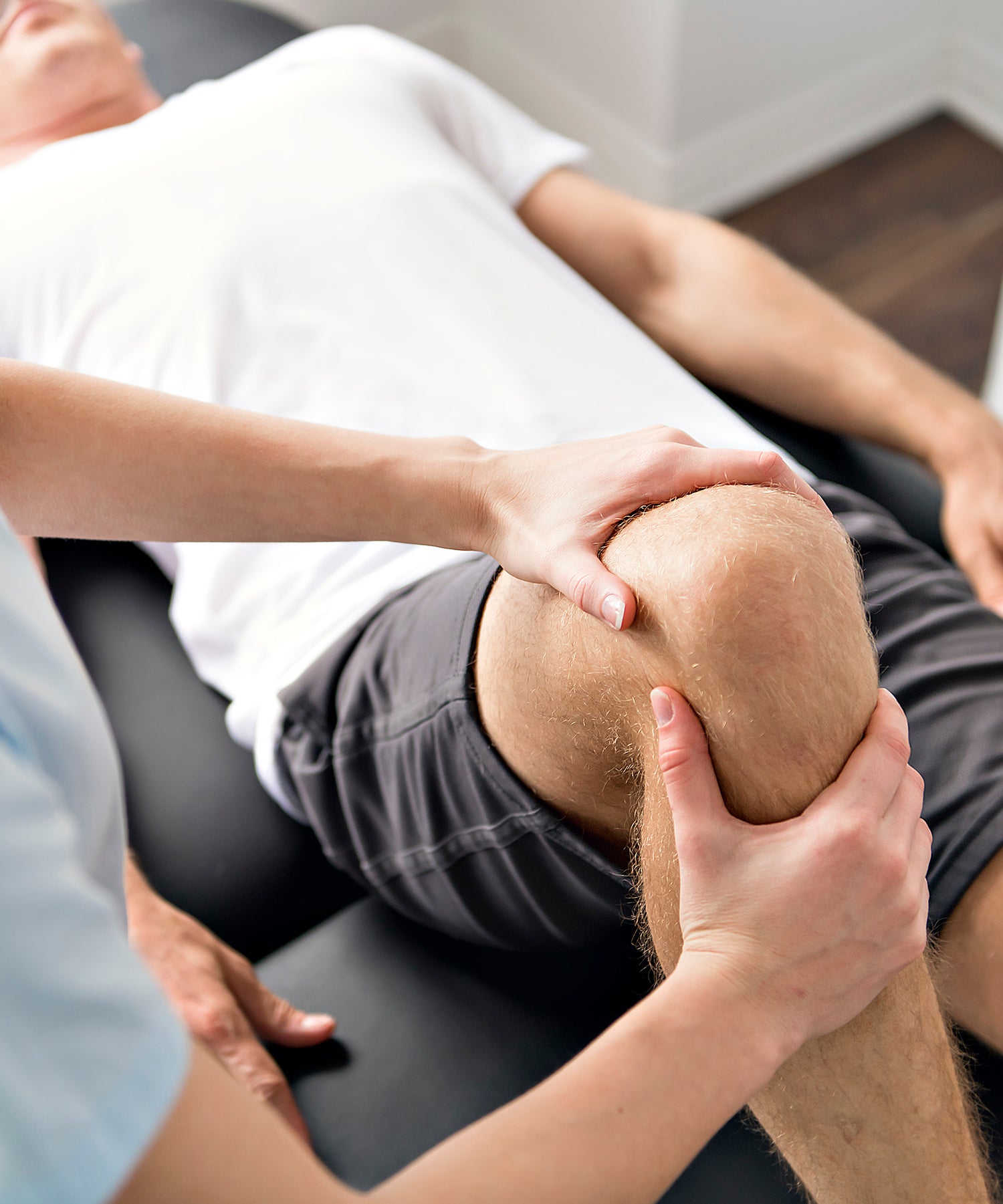
Muscle Problems
Muscle pain, tightness, or weakness can affect your movement, comfort, and overall quality of life. Whether it’s from overuse, injury, or postural imbalances, our team can help you manage and recover from a wide range of muscle-related issues.
- Muscle Strains: Often caused by overstretching or sudden movements, leading to pain, swelling, and reduced strength.
- Muscle Tightness & Spasms: Involuntary contractions or stiffness, often due to fatigue, dehydration, or poor posture.
- Delayed Onset Muscle Soreness (DOMS): Post-exercise soreness that can interfere with movement and performance.
- Myofascial Pain Syndrome: Chronic muscle pain and trigger points (knots) that can refer pain to other areas.
- Muscle Imbalances: When opposing muscle groups are not evenly developed, leading to poor movement mechanics and injury risk.
- Weakness or Atrophy: Muscle wasting or reduced function following injury, surgery, or long periods of inactivity.
Our physiotherapists assess the root cause of your muscle problem and develop a personalised plan. Whether your muscle issue is new, long-standing, or sport-related, our goal is to reduce your pain, restore function, and help you move with confidence.
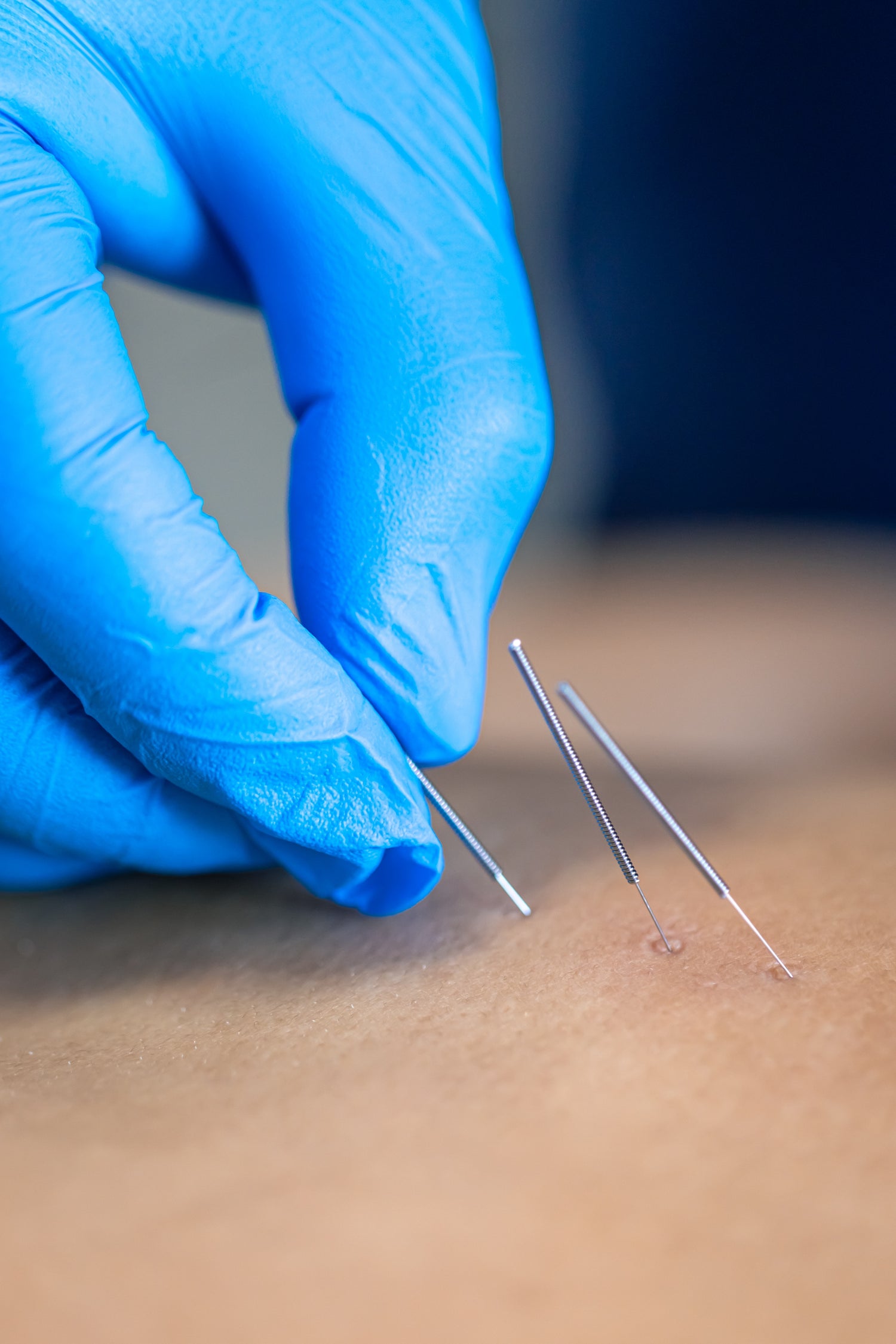
Accupuncture
Acupuncture is a safe, effective treatment that can help relieve pain, reduce muscle tension, and promote healing. At our clinic, acupuncture is performed by qualified physiotherapists as part of an integrated treatment plan tailored to your needs.
Acupuncture involves the insertion of very fine, sterile needles into specific points on the body. These points help stimulate the body’s natural healing response, reduce inflammation, and improve circulation. It’s a technique rooted in traditional Chinese medicine, now widely used in modern physiotherapy.
- Chronic Pain: Including lower back pain, neck pain, and osteoarthritis.
- Muscle Tightness & Trigger Points: Helps release tight bands of muscle and reduce discomfort.
- Headaches & Migraines: May help reduce the frequency and severity of tension-related headaches.
- Tendonitis & Overuse Injuries: Supports healing and reduces inflammation.
- Nerve-Related Pain: Such as sciatica or referred pain from compressed nerves.
- Stress & Tension: Promotes relaxation and helps ease physical symptoms of stress.
We often use acupuncture alongside other physiotherapy techniques to support your overall recovery. Our goal is to help reduce your symptoms, improve your movement, and get you back to doing the things you enjoy.
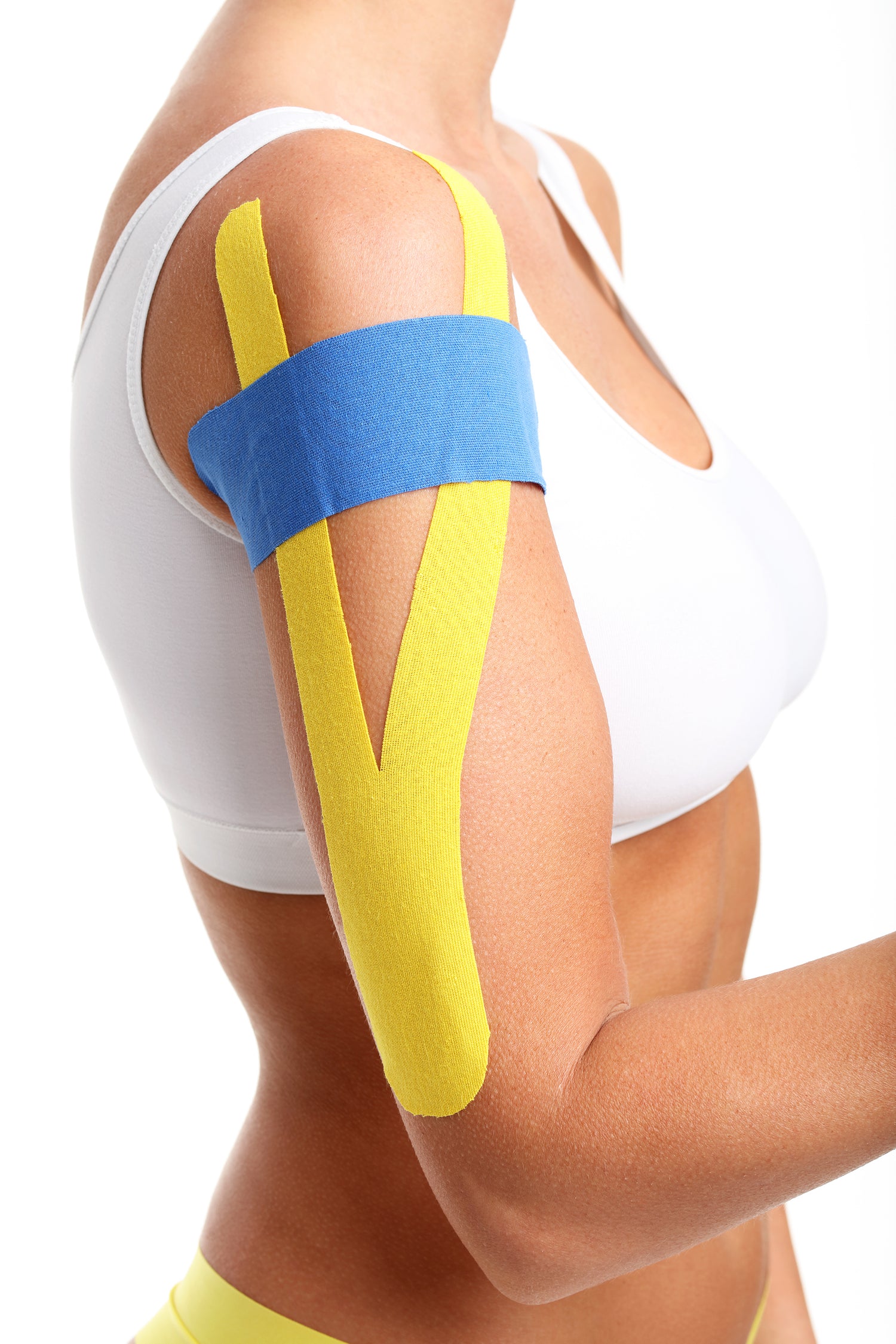
Kinesiology Taping
Kinesiology taping is a gentle, supportive technique used to help reduce pain, improve movement, and support injured or overworked muscles and joints. It’s commonly seen on athletes but is equally effective for everyday aches and injuries.
Kinesiology tape is a flexible, breathable tape that mimics the elasticity of skin. When applied by a trained physiotherapist, it can gently lift the skin, creating space between layers of tissue to reduce pressure, inflammation, and discomfort. Kinesiology Taping can help with include:
- Muscle Strains & Sprains: Supports healing muscles without restricting movement.
- Joint Instability: Helps stabilise joints, such as shoulders, knees, or ankles.
- Swelling & Bruising: Aids lymphatic drainage and circulation, speeding up recovery.
- Postural Support: Provides gentle feedback to encourage better posture during movement or rest.
- Tendon & Ligament Injuries: Offers extra support for overused or injured soft tissues (e.g., Achilles tendinopathy, IT band issues).
- Sports Performance: Enhances body awareness and reduces muscle fatigue during activity.
Taping is often used in combination with other treatment techniques. It’s not a standalone solution, but when used appropriately, kinesiology taping can be a powerful tool to support healing, improve performance, and prevent further injury.

Balance, Dizziness & Vertigo
Feeling unsteady, dizzy, or off-balance can be unsettling and impact your confidence in daily activities. These symptoms often stem from issues in the vestibular system (your inner ear) or problems with muscle control and posture. Our physiotherapists offer specialised treatment to help you regain control and feel steady on your feet again.
- Benign Paroxysmal Positional Vertigo (BPPV): A common inner ear condition that causes short bursts of dizziness with head movements.
- Vestibular Neuritis or Labyrinthitis: Inflammation of the inner ear that can lead to intense dizziness and imbalance.
- Post-Concussion Dizziness: Ongoing symptoms following a head injury.
- Age-Related Balance Decline: Reduced stability due to muscle weakness, joint stiffness, or sensory changes.
- Neurological Conditions: Such as Parkinson’s disease or stroke-related balance problems.
- Visual or Proprioceptive Imbalance: Difficulty processing sensory information for balance and coordination.
Our approach combines vestibular rehabilitation and balance training, tailored to your specific symptoms and diagnosis. The goal is to reduce your dizziness, improve your balance, and restore your confidence in daily life – whether you’re walking, exercising, or simply turning your head.

Osteoporosis
Osteoporosis is a condition where bones become thinner, weaker, and more fragile, increasing the risk of fractures. While it’s more common with age—especially in post-menopausal women—it can affect anyone. Physiotherapy plays a key role in managing osteoporosis safely and effectively.
Osteoporosis develops when bone density decreases over time, often without obvious symptoms until a fracture occurs. Common fracture sites include the hip, spine, and wrist. Early diagnosis and active management are essential to reduce the risk of injury and maintain independence.
At our clinic, we help people with osteoporosis improve their strength, posture, and confidence in movement—while reducing the risk of falls and fractures. Your treatment plan is tailored to your level of bone density, mobility, and goals.
We work with you to build strength safely and steadily—so you can feel more confident, stay active, and protect your bone health.

Pediatric Physiotherapy
Children aren’t just small adults—they have their own unique needs when it comes to movement, growth, and development. Our paediatric physiotherapy services are designed to support children of all ages, helping them move confidently, reach developmental milestones, and thrive in daily life.
We work with infants, toddlers, children, and teenagers who may be experiencing:
- Developmental Delays: Such as late sitting, crawling, or walking.
- Coordination & Balance Issues: Including clumsiness, poor posture, or difficulty with physical activities.
- Neurological Conditions: Such as cerebral palsy, muscular dystrophy, or spina bifida.
- Orthopaedic Conditions: Like flat feet, in-toeing/out-toeing, or scoliosis.
- Injuries & Post-Surgical Rehab: Including fractures, sprains, or recovery after orthopaedic surgery.
- Torticollis & Plagiocephaly: Head tilt or flat spots on the head in infants.
- Hypermobility or Low Muscle Tone: That affects endurance, posture, or participation in play.
We make therapy fun, family-friendly, and goal-oriented. Every child receives an individualised plan. Our aim is to empower children to reach their full physical potential in a supportive, encouraging environment.
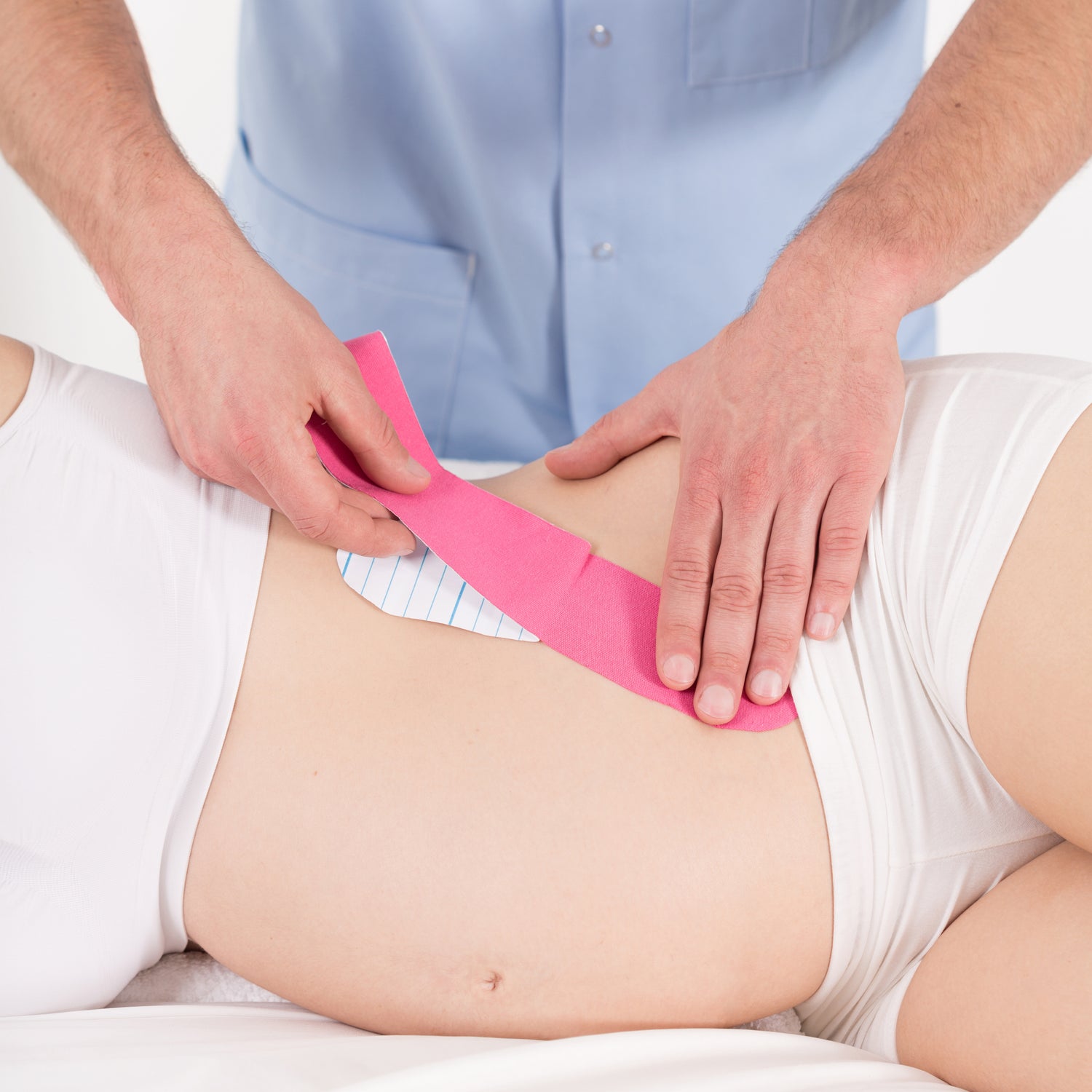
Pregnancy Related Pain
Pregnancy is a time of incredible change—but it can also bring physical discomfort and strain. Our physiotherapists offer gentle, safe, and effective treatments to help relieve pain, support your changing body, and keep you moving comfortably throughout pregnancy and beyond.
- Pelvic Girdle Pain (PGP): Discomfort in the front or back of the pelvis, often caused by joint and ligament changes.
- Lower Back Pain: Common due to postural changes and increased pressure on the spine.
- Sciatica: Nerve pain radiating into the leg, often due to pelvic or lower back compression.
- Round Ligament Pain: Sharp or pulling sensations in the lower belly or groin.
- Upper Back & Rib Pain: Caused by postural shifts or baby’s positioning.
- Carpal Tunnel Syndrome: Wrist and hand pain or numbness caused by fluid retention and nerve compression.
- Postural Strain & Fatigue: From changes in body alignment, weight distribution, and core stability.
Our approach is gentle and tailored to your stage of pregnancy and symptoms. We’re here to support you through every trimester, helping you feel stronger, more comfortable, and more in control of your body during this special time.
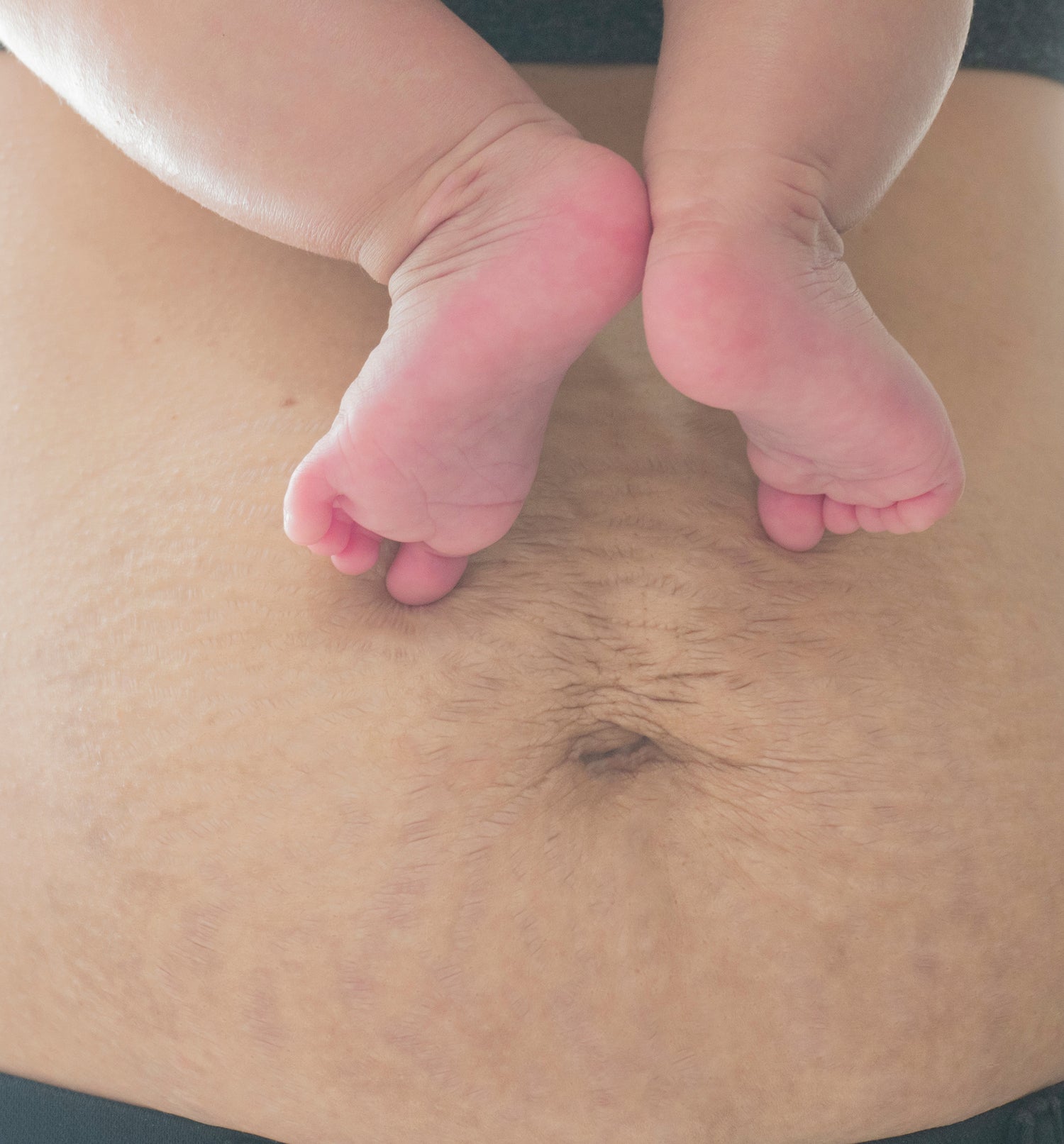
Postnatal Rehab
Your body goes through an incredible transformation during pregnancy and birth—and recovery takes time. Postnatal physiotherapy is designed to help you heal, rebuild strength, and feel like yourself again. Whether you had a natural birth or a caesarean, our personalised care supports your recovery every step of the way. Common Postnatal Issues We Help With:
- Abdominal Muscle Separation (Diastasis Recti): Weakness or a gap in the abdominal wall after pregnancy.
- Pelvic Floor Weakness: Causing symptoms like urinary leakage, heaviness, or reduced support.
- Lower Back & Pelvic Pain: Ongoing discomfort from pregnancy or delivery-related changes.
- Postural Strain: From feeding, lifting, or carrying your baby.
- C-Section Recovery: Scar care, core rehab, and safe movement following surgery.
- Return to Exercise Guidance: Safely easing back into fitness and activity.
- Prolapse Support: Management and education for vaginal prolapse symptoms.
- Fatigue & Muscle Imbalance: Helping restore strength and energy levels postpartum.
Our postnatal rehab programs are gentle, respectful, and tailored to your body’s recovery. You’ve taken care of your baby—now it’s time to take care of you. We’re here to help you rebuild strength, regain confidence, and feel good in your body again.
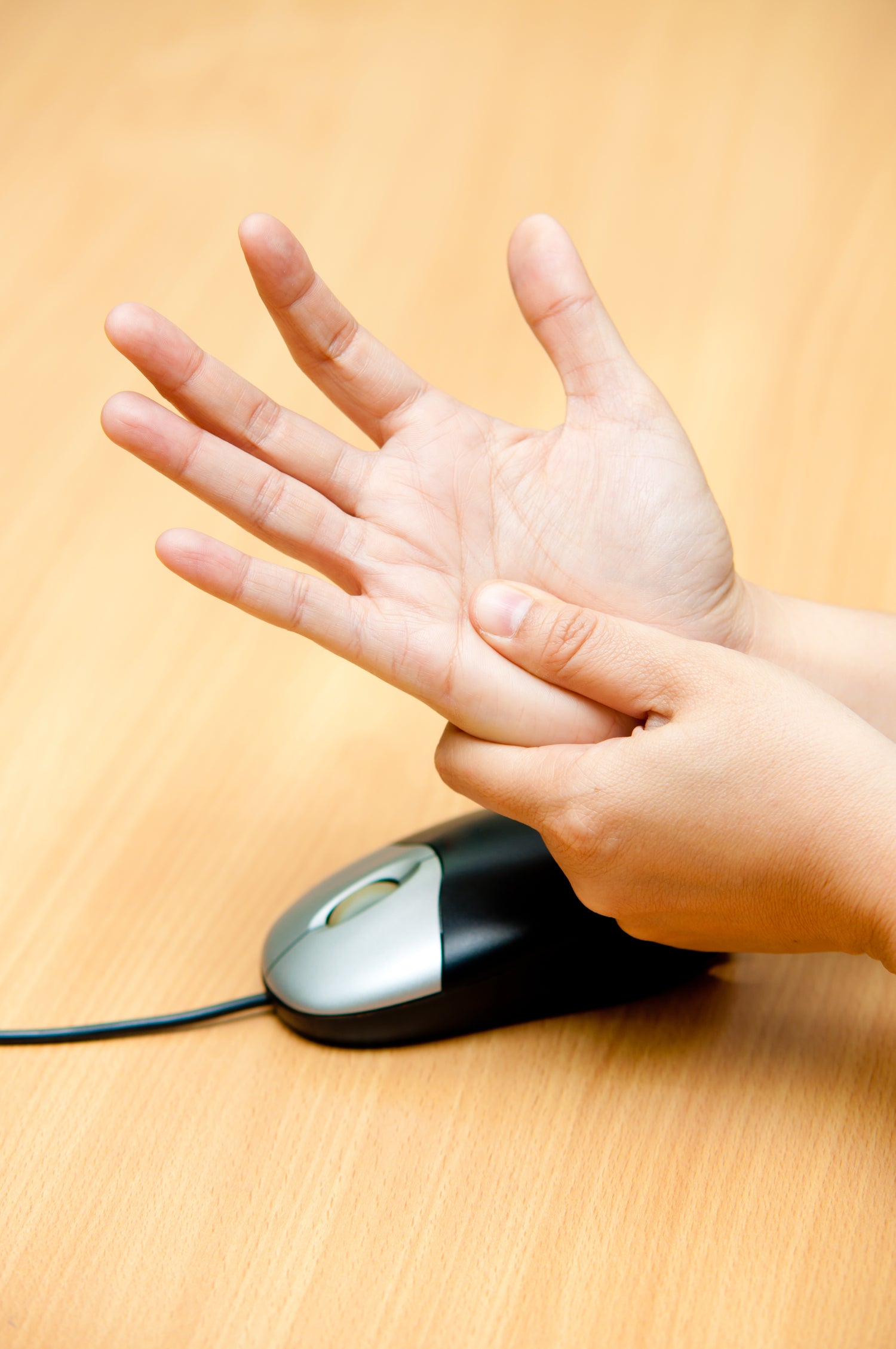
Repetitive Strain Injuries
Repetitive strain injuries (RSIs) are common in both work and daily life, especially when the same movements are performed repeatedly or with poor posture. Whether you’re typing at a desk, lifting at work, or playing a musical instrument, RSIs can cause pain, stiffness, and reduced function over time. Common RSIs We Treat:
- Tennis Elbow (Lateral Epicondylitis): Pain on the outside of the elbow, often from gripping or repetitive wrist movement.
- Golfer’s Elbow (Medial Epicondylitis): Pain on the inside of the elbow, often related to repetitive arm movements.
- Carpal Tunnel Syndrome: Numbness or tingling in the hands from pressure on the median nerve.
- De Quervain’s Tenosynovitis: Pain and swelling at the base of the thumb due to overuse.
- Rotator Cuff Tendinopathy: Shoulder pain from repetitive lifting or overhead activity.
- Trigger Finger: Finger stiffness or locking from repetitive gripping.
- Occupational Overuse Syndrome: Generalised pain and fatigue from repetitive work-related tasks (e.g., keyboard use, manual labour).
We take a comprehensive approach to treating RSIs by addressing both the symptoms and the root cause of the problem. Early treatment is key to preventing long-term problems—so if you’re noticing persistent aches, tingling, or weakness, we’re here to help you get back on track.
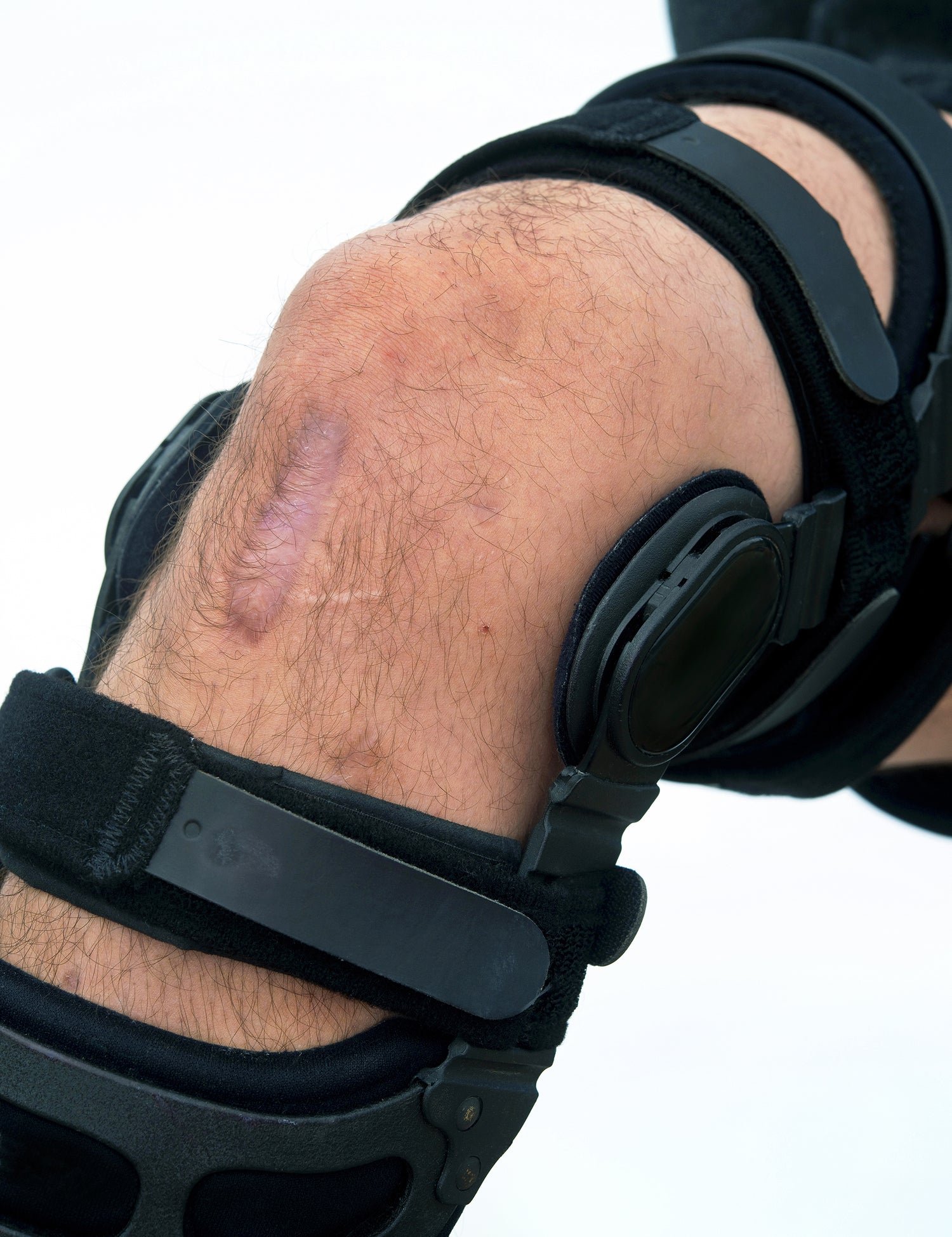
Pre/Post Surgery Rehab
Surgery is often just one part of the recovery journey. Physiotherapy before and after your operation can make a big difference in your recovery speed, strength, and confidence. Our goal is to help you prepare for surgery, recover safely, and return to daily life stronger and more mobile. Common Surgeries We Support:
- Joint Replacements: Hip, knee, or shoulder replacements.
- Arthroscopic Surgeries: Such as knee meniscus repair or shoulder decompression.
- Spinal Surgery: Including discectomy, laminectomy, or spinal fusion.
- Ligament Repairs: Like ACL or rotator cuff surgery.
- Fracture Repairs or Fixations
- Tendon Repairs: Achilles, patellar, or hand/wrist tendons.
- Orthopaedic or Sports Injury Surgeries
Preparing your body for surgery can lead to a smoother and faster recovery. After surgery, we guide you through a structured recovery process to help restore strength, mobility, and independence. We work closely with your surgeon’s guidelines to ensure your recovery is safe, effective, and tailored to your goals.
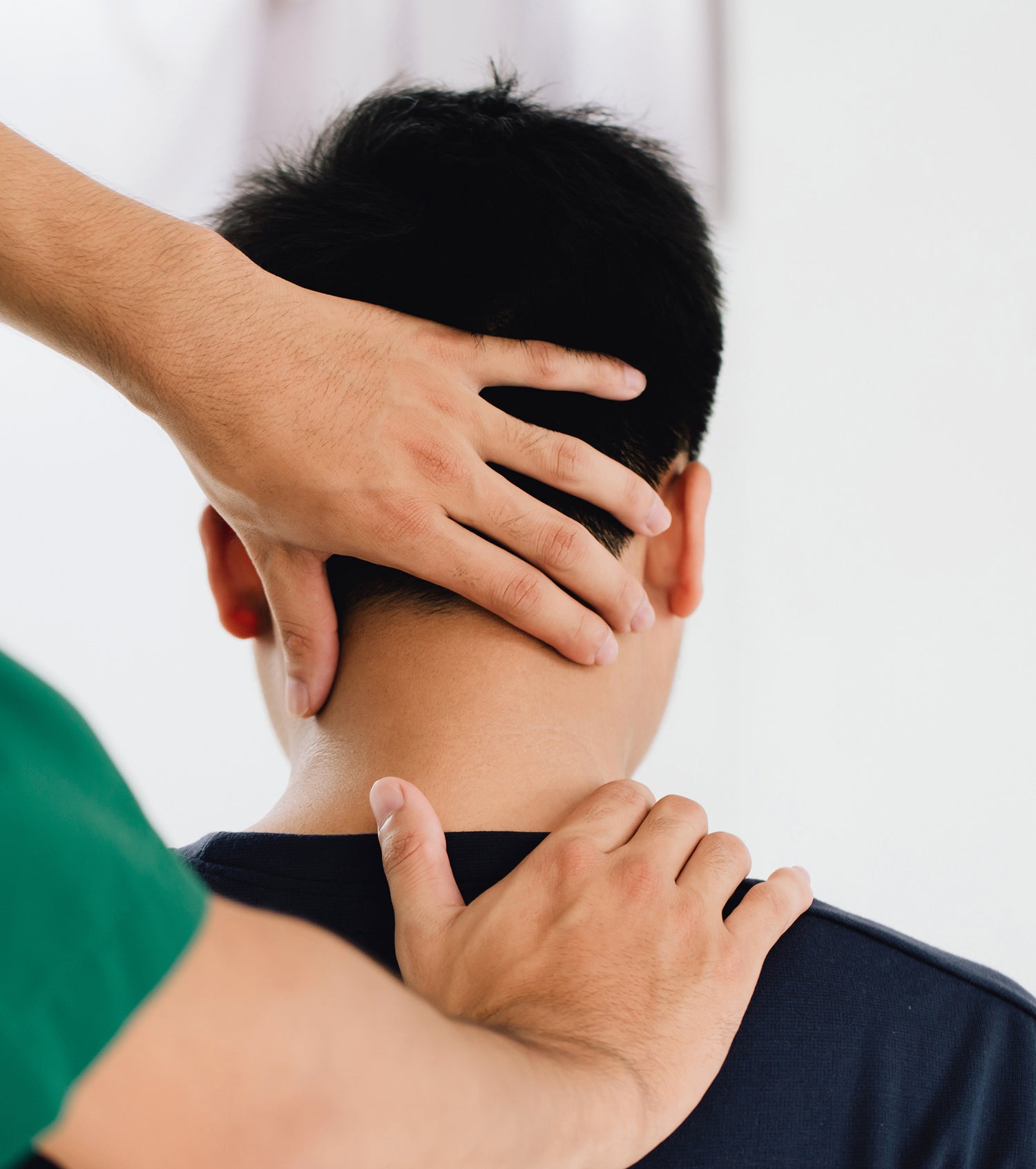
Headaches
Headaches can be more than just a nuisance—they can interfere with your work, sleep, concentration, and overall quality of life. While there are many different causes of headaches, physiotherapy can be an effective treatment option, particularly when they’re linked to the neck, posture, or muscle tension. Types of Headaches We Commonly Treat:
- Tension Headaches: Often caused by stress, poor posture, or tight muscles around the neck and shoulders.
- Cervicogenic Headaches: Headaches that originate from issues in the neck joints or muscles and refer pain to the head.
- Migraine Management Support: While physiotherapy doesn’t treat migraines directly, it can help reduce triggers such as neck stiffness, poor posture, or stress.
- Jaw-Related (TMJ) Headaches: Pain linked to jaw tension or clenching.
- Postural Headaches: Often experienced by people who sit for long periods or work at computers.
Our physiotherapists perform a thorough assessment to identify the cause of your headaches and tailor a treatment plan. The aim is not just to treat the symptoms—but to help you understand and manage the underlying causes, so you can get back to living with fewer interruptions and more ease.

Mobility/Balance Issues
Struggling with mobility or balance can affect your confidence, independence, and safety—whether you're recovering from an injury, managing a long-term condition, or noticing age-related changes. Our physiotherapists are here to help you move more freely and feel more stable, so you can stay active and independent. Common Causes of Mobility & Balance Problems We Treat
- Age-Related Decline: Muscle weakness, joint stiffness, or slower reflexes increasing fall risk.
- Neurological Conditions: Such as Parkinson’s disease, stroke, multiple sclerosis, or neuropathy.
- Muscle Weakness or Deconditioning: Often after illness, surgery, or a long period of inactivity.
- Joint Conditions: Like arthritis affecting hips, knees, or ankles.
- Vestibular Disorders: Including vertigo or dizziness impacting balance.
- Post-Injury or Post-Surgery Recovery: Especially after lower limb injuries like fractures, sprains, or joint replacements.
- Falls or Near-Falls: Unexplained stumbles or loss of confidence walking or standing.
We take a personalised approach to help restore your movement, strength, and stability. Whether your goal is to reduce falls, walk more confidently, or simply move more freely, we’ll support you every step of the way.
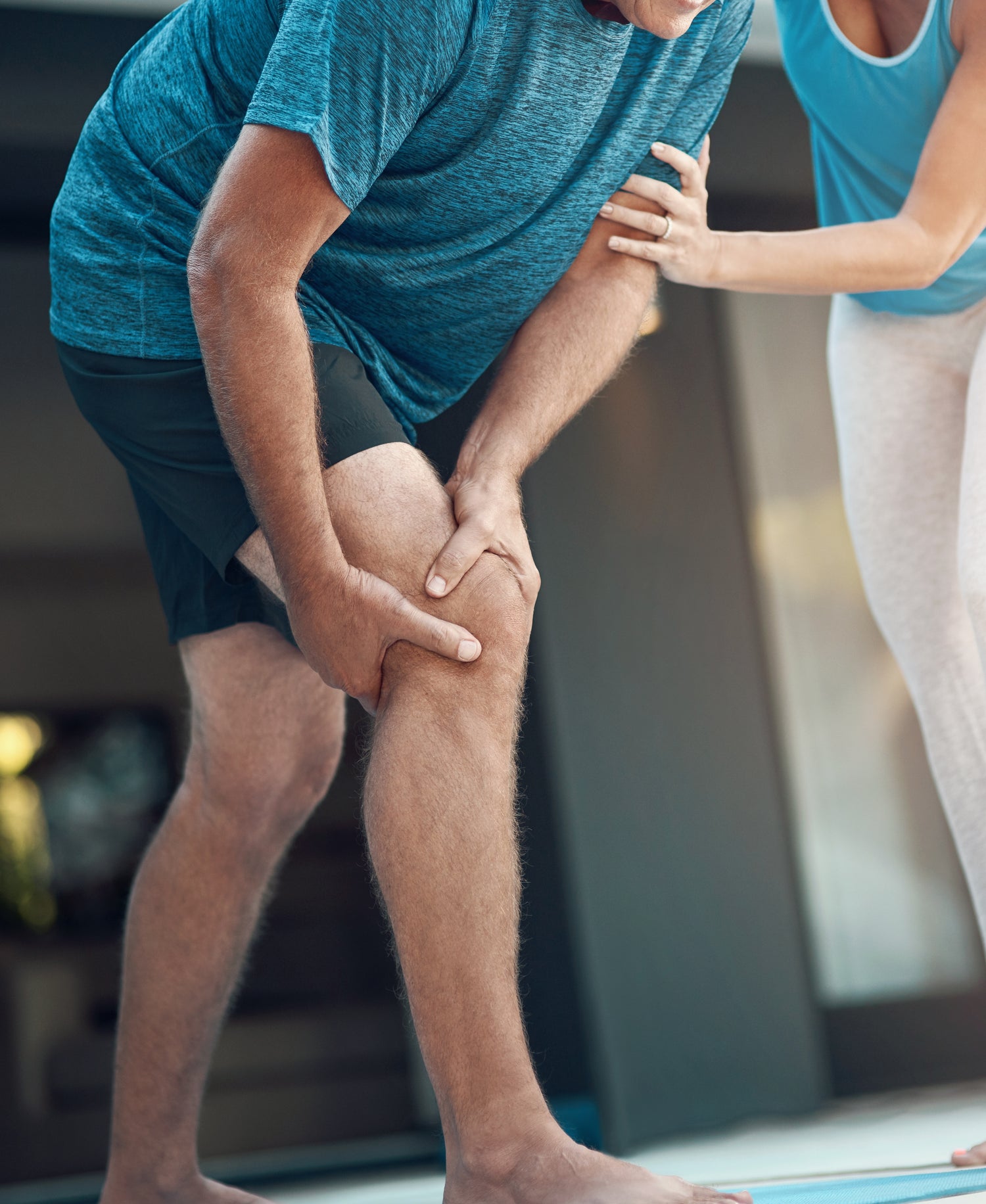
Joint Issues
Stiff, painful, or swollen joints can limit your ability to move comfortably and enjoy everyday life. Whether it’s due to injury, wear and tear, or a chronic condition, physiotherapy can help relieve joint pain, restore mobility, and improve your quality of life. Common Joint Conditions We Treat
- Osteoarthritis: Age-related wear and tear affecting joints like the knees, hips, hands, and spine.
- Rheumatoid Arthritis: An inflammatory autoimmune condition that can cause joint pain and swelling.
- Joint Sprains & Instability: Often in the ankles, knees, shoulders, or wrists after injury or overuse.
- Bursitis & Tendonitis: Inflammation around the joints, commonly affecting the shoulder, hip, elbow, or knee.
- Frozen Shoulder (Adhesive Capsulitis): A painful condition with limited shoulder movement.
- Joint Hypermobility: Excessively flexible joints that may cause pain or instability.
- Post-Surgical Joint Rehab: After joint replacements, reconstructions, or arthroscopic surgeries.
We work with you to manage joint pain, improve movement, and strengthen the muscles that support your joints. Whether your joint pain is new, ongoing, or post-surgical, our goal is to help you move more comfortably and get back to doing the things you love.
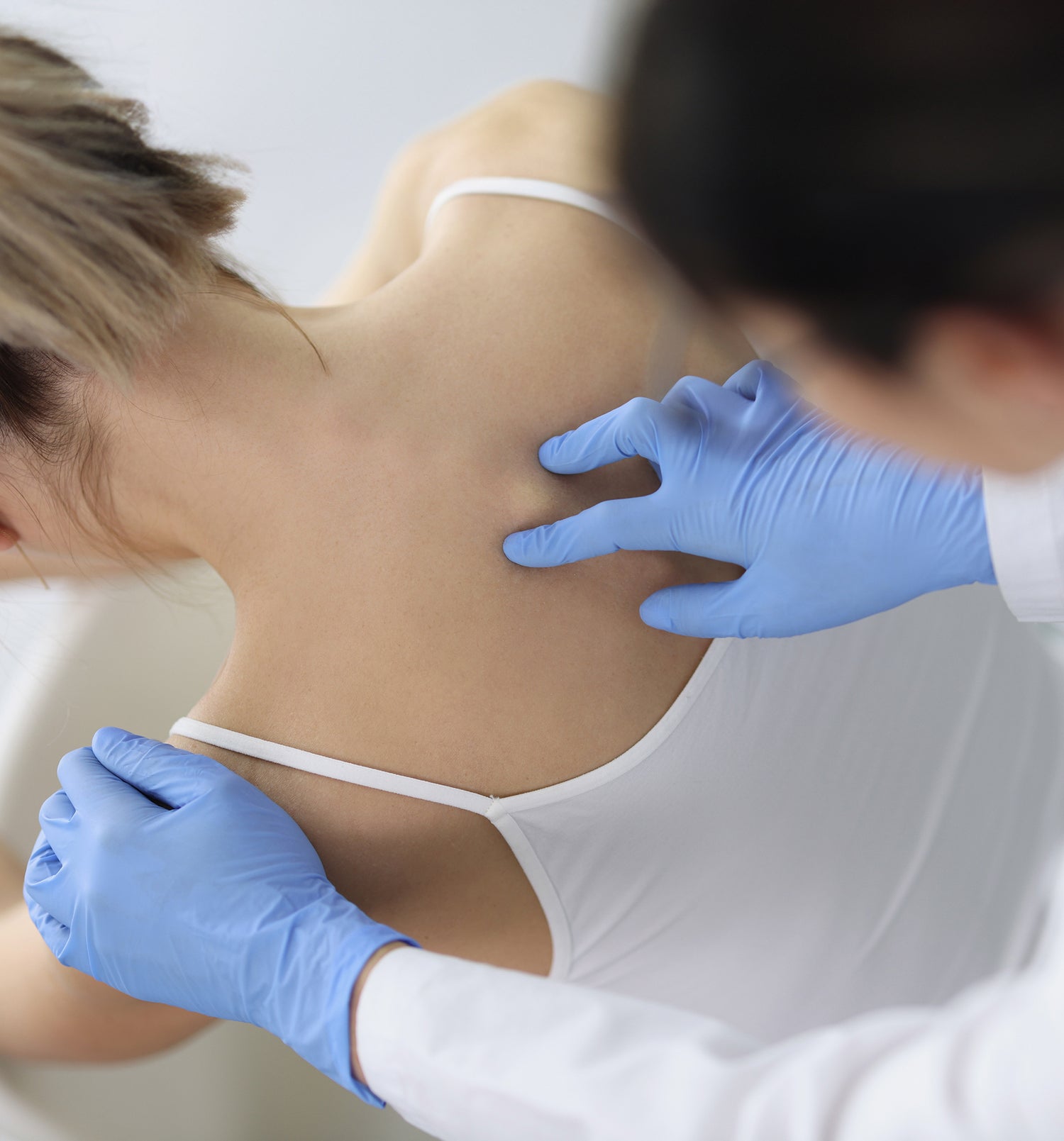
Chronic Pain Management
Living with chronic pain can be exhausting—physically, mentally, and emotionally. Whether your pain has lasted for months or years, physiotherapy can help you regain control, reduce discomfort, and improve your daily function through a supportive, evidence-based approach.
What is Chronic Pain?
Chronic pain is pain that persists beyond normal healing time—typically longer than 3 months. It can result from an initial injury, surgery, medical condition, or appear without a clear cause. It may affect one area (like the back or shoulder) or be more widespread. Common Conditions We Help Manage:
- Chronic Lower Back or Neck Pain
- Fibromyalgia & Widespread Muscular Pain
- Persistent Joint Pain (e.g., Osteoarthritis, Rheumatoid Arthritis)
- Complex Regional Pain Syndrome (CRPS)
- Post-Surgical or Post-Injury Pain
- Nerve-Related Pain (e.g., Sciatica, Neuralgia)
- Repetitive Strain & Overuse Syndromes
Chronic pain is complex and deeply personal, so our approach is holistic, gentle, and tailored to your needs. We focus on improving function and quality of life—not just masking symptoms. We work alongside you, at your pace, to reduce flare-ups, build resilience, and help you enjoy life again—even with chronic pain.
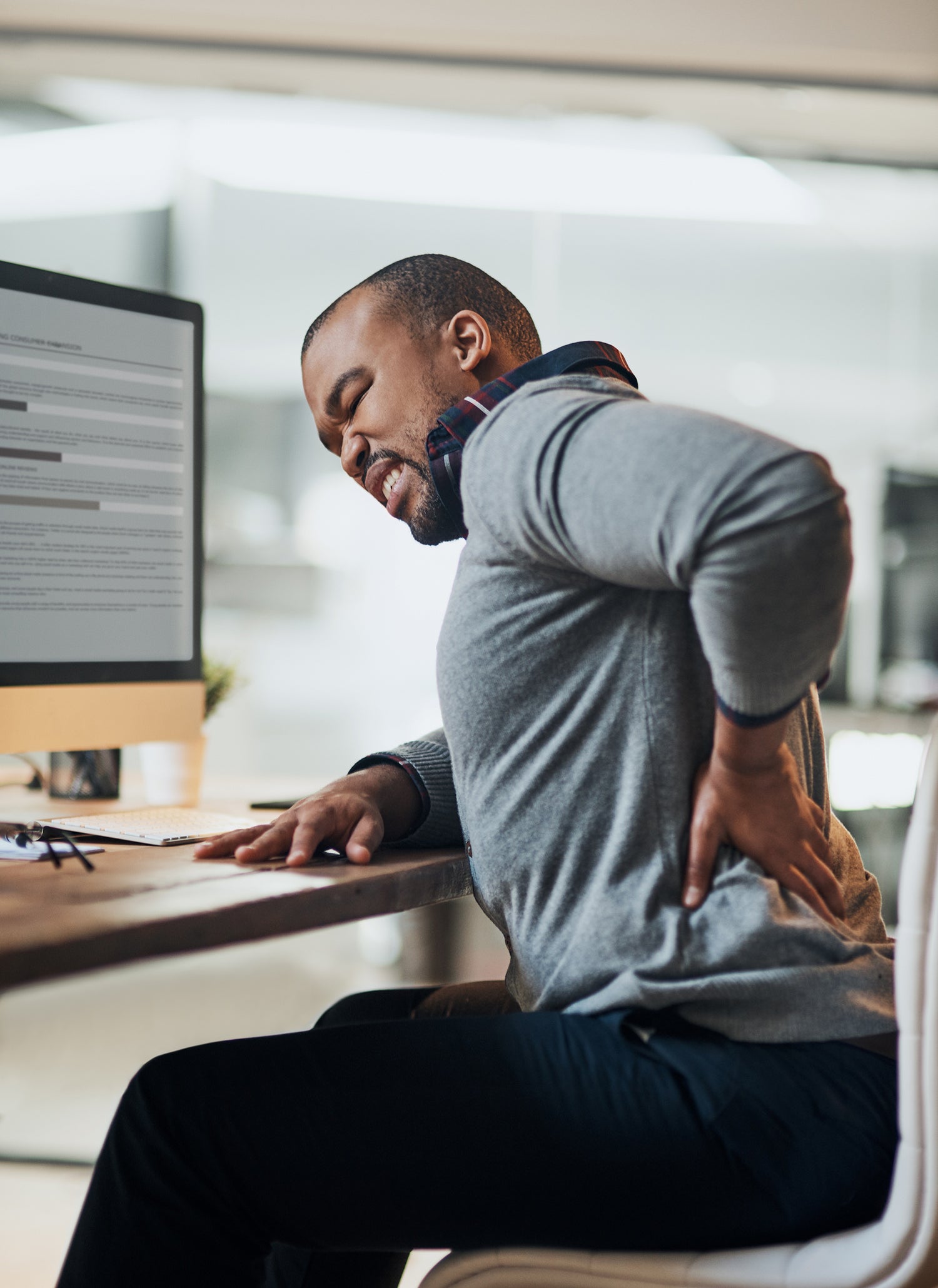
Preventative Care
Physiotherapy isn’t just for treating pain or injury—it’s also a powerful tool for preventing problems before they start. Whether you're an athlete, a desk worker, a busy parent, or simply looking to stay active and well, preventative physiotherapy helps keep your body strong, mobile, and injury-free.
What is Preventative Physiotherapy?
Preventative care focuses on identifying potential issues early—such as muscle imbalances, poor posture, movement inefficiencies, or early signs of joint or tissue stress—and addressing them before they become painful or limiting.
Who Can Benefit?
- Athletes & Active Individuals: To optimise performance, reduce injury risk, and recover faster between sessions.
- Office Workers & Students: To combat postural strain, stiffness, and repetitive stress injuries.
- Older Adults: To maintain mobility, improve balance, and prevent falls or joint degeneration.
- People with Previous Injuries: To prevent recurrence and build long-term resilience.
- Those With Busy or Physically Demanding Lifestyles: To stay strong, flexible, and pain-free.
What Preventative Physiotherapy Involves:
Your physiotherapist will assess your movement, posture, strength, and lifestyle demands to create a tailored plan. Think of it as a check-up for your muscles and joints—helping you stay one step ahead of injury, discomfort, or reduced function.
